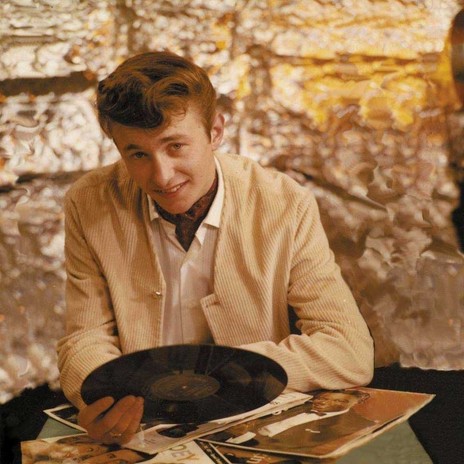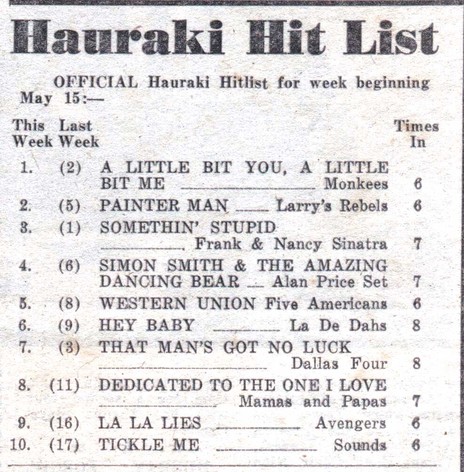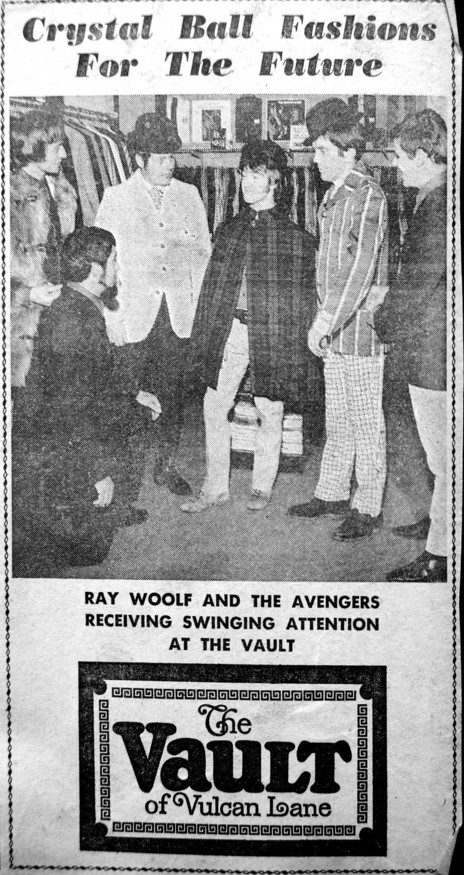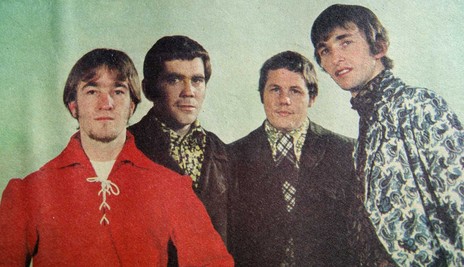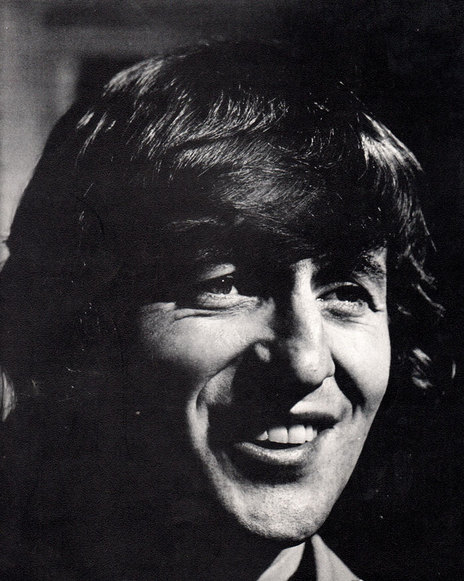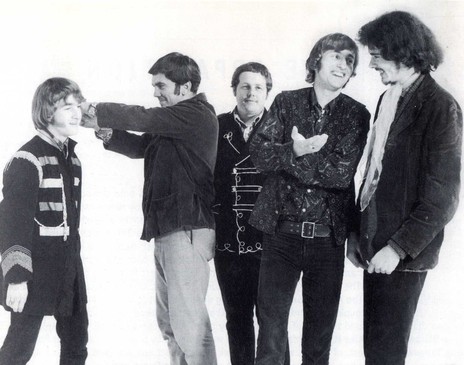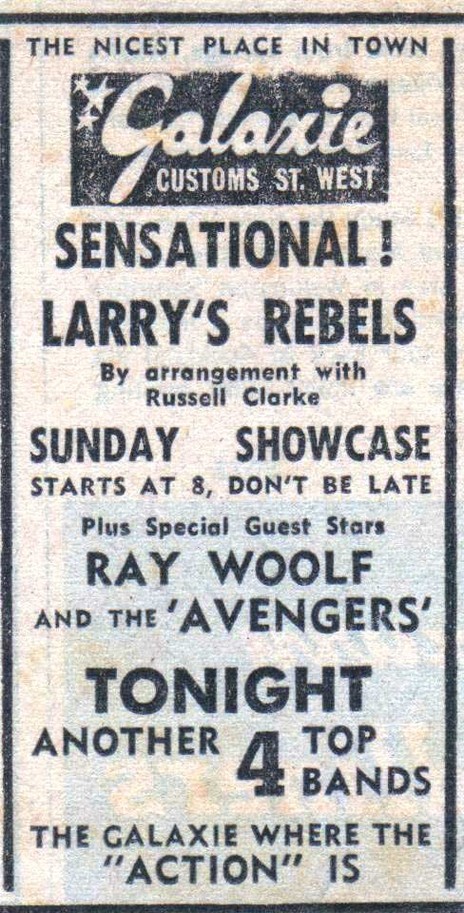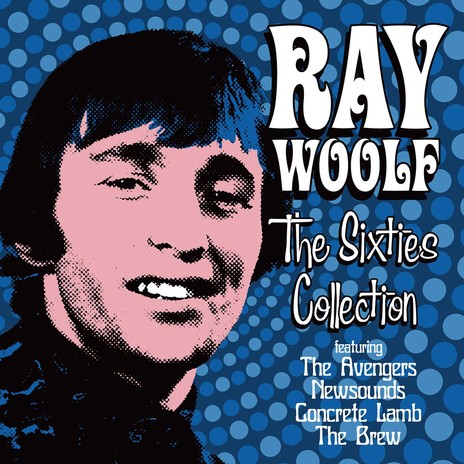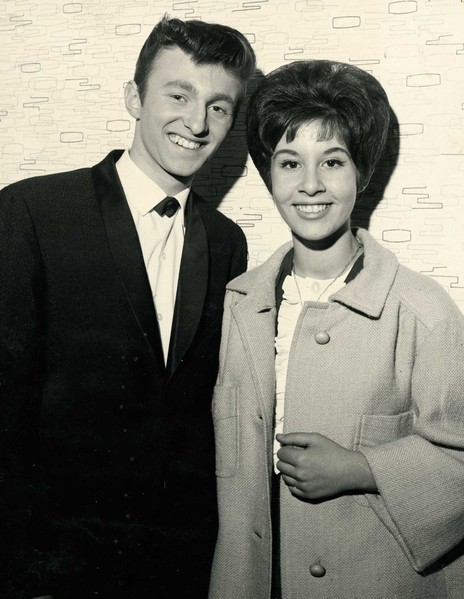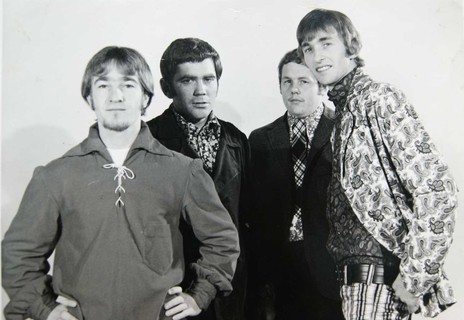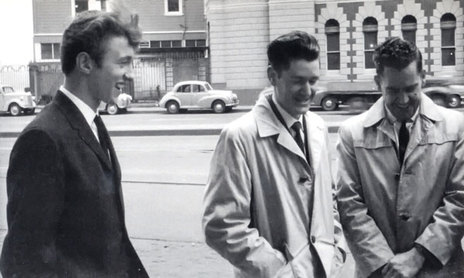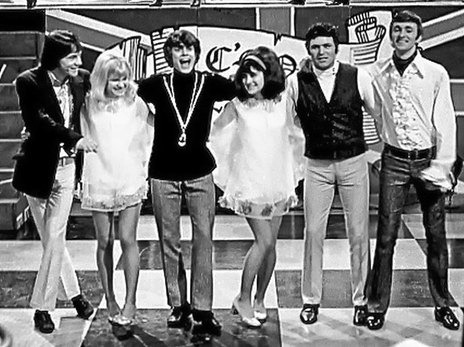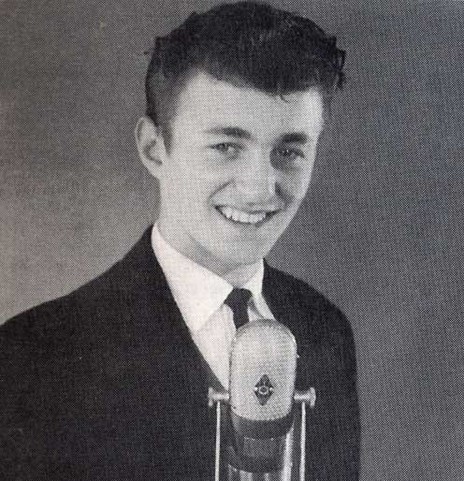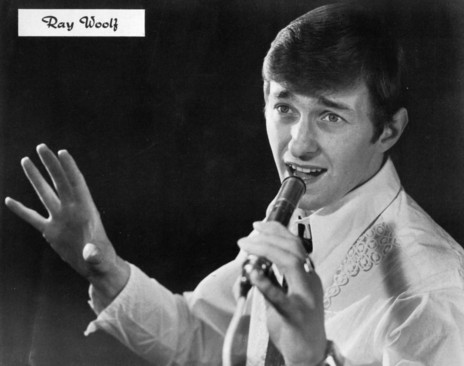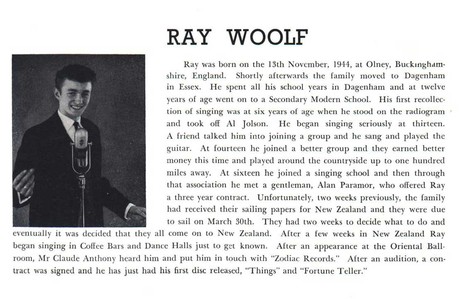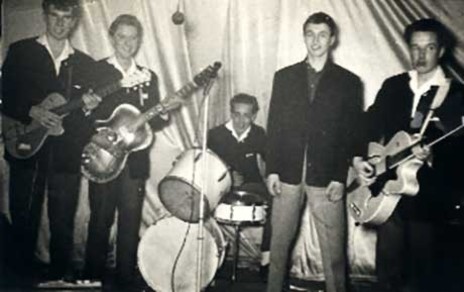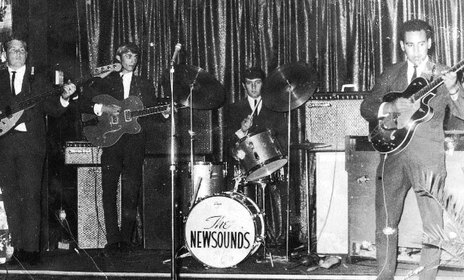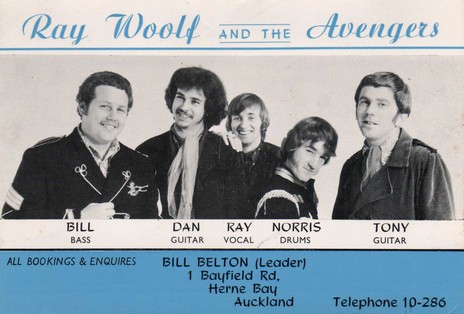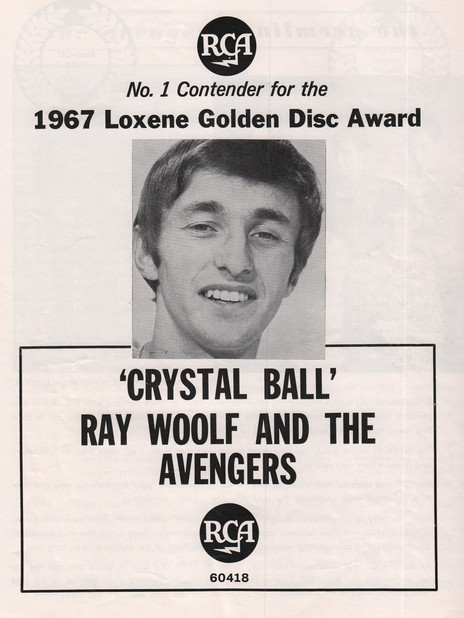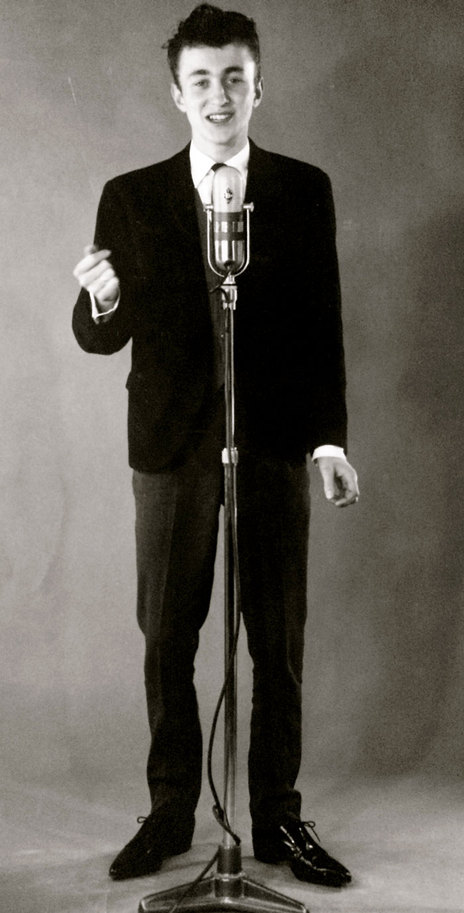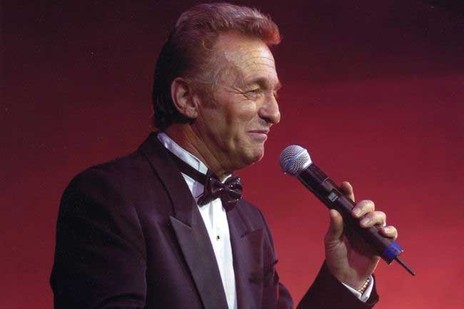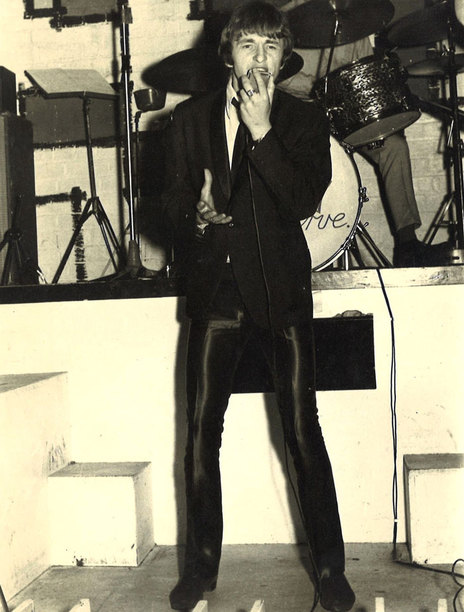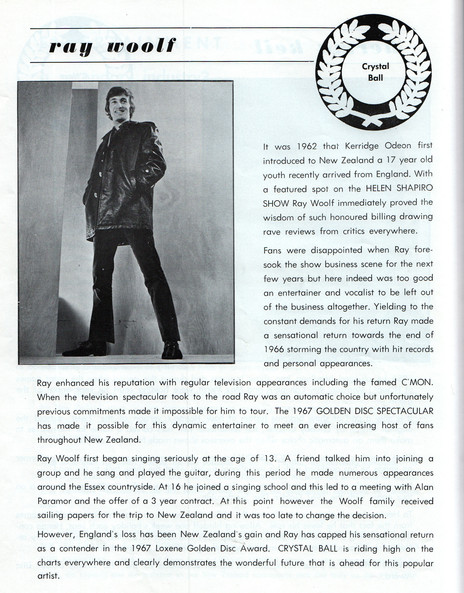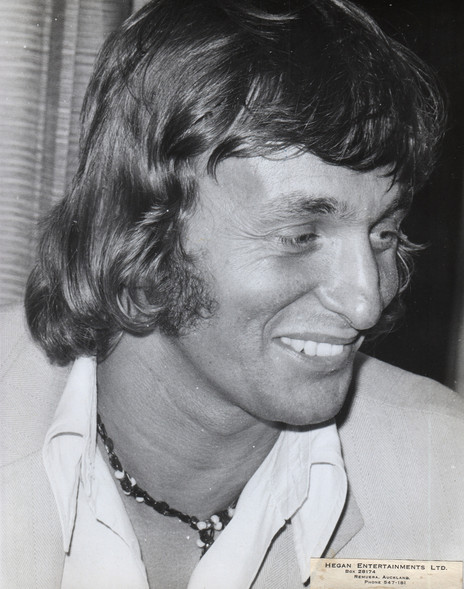Woolf's musical career started back in Britain where he formed his first band, The Wild Cats, at age 13, followed two years later by Group Five and then, circa 1961, The Saracens, one of those bubbling-under bands who played further afield, including the 2 i’s, the Soho coffee bar famed for launching the careers of Tommy Steele and Cliff Richard. They recorded a track, ‘Blue Moon’, which although unreleased, received repeated airplay on Radio Luxembourg. Woolf performed a solo gig backed by Emile Ford’s Checkmates, one of Britain’s top pre-Beatles bands, and appeared on a BBC documentary singing ‘That Old Black Magic’.
In the middle of all this his mother decided that if he was to continue dabbling in music, he should attend a music school. “It didn’t really appeal,” Woolf says, “but my mum pointed out that it was also about making contacts in the music industry. My father couldn’t see the point of it. I remember watching a preview of Jailhouse Rock with him and he said, ‘It won’t last.’ I had uncles lecturing me about getting a real job.”
At the Burman School of Music, Woolf was introduced to jazz, a lifelong love. “The first LP I ever bought wasn’t rock and roll,” he says, “but [jazz guitarist] Wes Montgomery.”
Just five months after arriving in New Zealand, Ray Woolf was the support act on the Helen Shapiro tour.
Just weeks before immigrating, Woolf came to the attention of booking agent Alan Paramour, brother of top record producer Norrie Paramour. Clearly, Ray Woolf’s career was showing promise before he landed on these shores.
The Woolf family sailed into a sunny Wellington Harbour on 7 May 1962 (“I thought we had arrived in Paradise”), catching the evening train to Auckland, where the family based themselves. Aged 17 and wanting to kick out, Woolf took in his new hometown, attending Des Britten’s Hi-Five Club at at the Auckland Town Hall. He was impressed most by Freddie Keil and The Kavaliers, and at the Oriental Ballroom he approached Herma Keil about singing a couple of songs with The Keil Isles, which led to Phil Warren offering him a paid performance the following week. Warren also invited Eldred Stebbing, Woolf’s first NZ manager, who signed him to Zodiac Records. ‘Fortune Teller’ was subsequently recorded and released and in September, just five months after arriving in New Zealand, Ray Woolf was the support act on the Helen Shapiro tour.
Managed by the owner of NZ’s top independent record label, further Ray Woolf recordings were guaranteed (‘Genie’, ‘That Friday Feeling’, ‘Just Like Eddie’) and Stebbing secured the teenager regular work, but it wasn’t a relationship without its problems.
“Eldred tried to dictate who I should socialise with and there were certain places I shouldn’t go to. There were a few problems and dramas, I was a bit up myself. Eldred had plans for the States but I’d had enough and dropped out, moved to Papakura, married and started a family, and got a job making furniture.”
It might have stayed that way but in 1965 he was approached by Bill Belton, an acquaintance whom he’d known from The Kavaliers. Guitarist Al Paget was forming a new band and he needed a lead vocalist. Bassist Bill Belton remembered Ray Woolf.
The Newsounds was a seven-piece band, including brass section, very much influenced by modern soul music. Zodiac released a couple of singles, ‘All Night Worker’ and ‘Over You’, but The Newsounds didn’t last more than around 12 months. Retaining Woolf, Bill Belton then formed The (Auckland) Avengers, adding Tommy Ferguson as a second vocalist. They debuted in November 1966 and had no sooner started when Bob Gillett came head-hunting for his new band, The Brew. Woolf and Avengers drummer Andy Shackleton sat in with the other Brew members (and Ray later provided lead vocals on ‘Bengal Tiger’, their sole release) but . . . “Man, it was pretty weird stuff they were getting into,” Woolf says. “Andy and I decided that they were on a different planet so we stuck with The Avengers.” Tommy Ferguson went on to join The Brew as lead vocalist.
Gaining a contract with RCA Records, Ray Woolf and The Avengers, as they were now billed, released three singles in 1967.
Gaining a contract with RCA Records, Ray Woolf and The Avengers, as they were now billed, released three singles in 1967 – ‘La La La Lies’, ‘Crystal Ball’ and ‘You’, with ‘Crystal Ball’ a finalist in the Loxene Golden Disc. It was 1967, longer hair, colourful clothes and wilder music. A proposed single, ‘Little Things That Happen’, written by the band in the studio, was considered too wild for release (and remained unreleased until Grant Gillanders located it for inclusion on his 2012 Ray Woolf 1960s compilation).
Things started to get a little complicated when Ray Woolf’s Avengers and the Wellington Avengers were both finalists in the Loxene Golden Disc Awards, and for the high-profile national tour which preceded the event Ray Woolf appeared solo, backed by The Gremlins. In February 1968, following a national beach resorts tour with Larry’s Rebels and Sandy Edmonds, Rebels manager Russell Clark convinced Woolf to return to a solo career.
There was a single (‘Be My Baby’) and regular appearances on C’Mon but, in all, Ray says, “It was a disaster, that year with Russell. It was Eldred all over again. Russell was into making rock stars. It just wasn’t me.” In 1969 he signed with Hegan Entertainment and it was Elaine Hegan who guided Ray Woolf into a cabaret career.
In the 1970s Ray Woolf became a household name, less to do with his musical abilities than as a regular face on television. Appearances on Happen Inn and other entertainment programmes led to Woolf successfully auditioning for presenter of Play School, the children’s programme, which lasted 15 months before TVNZ teamed him with Val Lamont (and later Davina Whitehouse) for Two On One, a weekly talk show. That evolved into The Ray Woolf Show. In 1975 Ray Woolf received the Entertainer Of The Year award.
“Everything went well in the 1970s,” Woolf says, “until Billy T James changed the face of New Zealand television.” Not that Woolf was absent during the 1980s and beyond – there have been regular guest appearances on the box and then there were those TV ads – 12 years promoting Bic Pens with Howard Morrison followed by a five-year contract with La-Z-Boy reclining armchairs.
“It’s never really been about career choices,” says Woolf. “I read about career choices in overseas magazines, a luxury, but for me it was always about the money. Television was a lot of fun and I lived comfortably but it wasn’t great dosh, not like today’s salaries. Initially, I resented the television people. We were all underpaid and I thought that they were lucky to have me. In fact, I was lucky to have them because television set me up for life. The money was generally rubbish but I was working every weekend, all over the country, floor shows mostly, and getting good money, reaching a lot of people. It’s hard not to credit television exposure for that.”
Ray Woolf shifted to the far north in the early 1980s and in 1989 he opened his own nightclub in Taipa, Woolfie’s.
Ray Woolf shifted to the far north in the early 1980s and in 1989 he opened his own nightclub in Taipa, Woolfie’s. Artists to perform included Tommy Adderley, Rodger Fox, Midge Marsden and Bunny Walters. “It went well that first summer,” he recalls, “but winter was a disaster. It didn’t take long for the dress code to go out the window! It did okay for a couple of summers before pulling the plug.”
Ray Woolf still works, it’s in his blood. He has toured and recorded with the Rodger Fox Big Band, and he picks up occasional acting gigs, notably the Nothing Trivial series. In 2012 Grant Gillanders’s Frenzy Records released a compilation of Woolf’s 1960s recordings. Ray Woolf’s most regular musical collaborator is pianist and jazz maestro Mike Walker, a relationship of which Ray is obviously proud.
“Even back in the 1960s but particularly during the cabaret years I would haunt late night clubs like Montmartre, where the real musos played. I’ve played all over the country with mostly sub-standard backing, little time for rehearsals, so I loved to hang out with these great musicians. In fact, Spike (Walker) would get pissed off with me, asking if I could get up and sing ‘Mack The Knife’. I’ve always loved jazz and playing with New Zealand’s best is a privilege.”
In 2015 Ray Woolf undertook a world trip, including a return to Britain for the first time in 53 years. He did the tourist thing, the sight-seeing, had a great time. “I can clearly remember seeing New Zealand for the first time back in 1962, thinking it was Paradise. That hasn’t changed – there ain’t nowhere in the world like New Zealand!”
